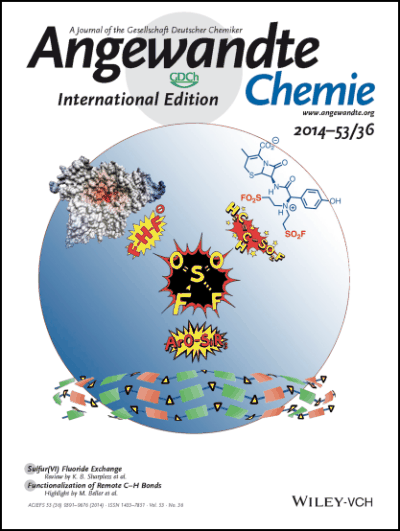iNANO Scientists Publish in Angewandte Chemie International Edition
The application of transition metal catalysis in organic synthesis has revolutionized the art of contemporary synthetic organic chemistry in both academia and industry over the last 30 years.

The application of transition metal catalysis in organic synthesis has revolutionized the art of contemporary synthetic organic chemistry in both academia and industry over the last 30 years. The attribution of 3 Nobel prizes in chemistry to this field in the last 13 years truly reflects its importance. Fundamental research from Academia is indisputably the main contributor to these discoveries, where the unearthing of new elementary properties of transition metal based reagents has contributed to a greater comprehension of the reactivity of such complexes, ultimately leading to the discovery of new and cleaner catalytic processes.
In this new paper in Angewandte Chemie International Edition, iNANO scientists report on a new method for accessing functionalized heterocycles, which are privileged structures found in countless natural products and drug candidates. Homogeneous catalysis plays an important role in medicinal chemistry allowing for a direct entry to a wide range of chemical structures under mild reaction conditions and generally with high yields. This is no exception for the new method to prepare 3-acyl-2-oxindoles which are featured in a number of bioactive compounds including GSK3 kinase inhibitors, influenza endonuclease inhibitors, and Tendidap, a potent inhibitor of cyclooxygenase. In particular, the new synthetic strategy allows for the preparation of 3-acyl-2-oxindoles via the Pd-catalysed carbonylation of 2-oxindoles with carbon monoxide and an aryl bromide thereby representing the quickest route to such compounds.

Read the full paper here:
Angew Chem Int. Ed. 2014 Sep 1;53(36):9582-6. doi: 10.1002/anie.201404217
For more information contact:
Zhong Lian
PhD Student, iNANO, Aarhus University
lianzhong@inano.au.dk
or Stig Friis
PhD Student, iNANO, Aarhus University
friis@chem.au.dk
or Troels Skrydstrup
Professor, iNANO, Department of Chemistry, Aarhus University
ts@inano.au.dk
